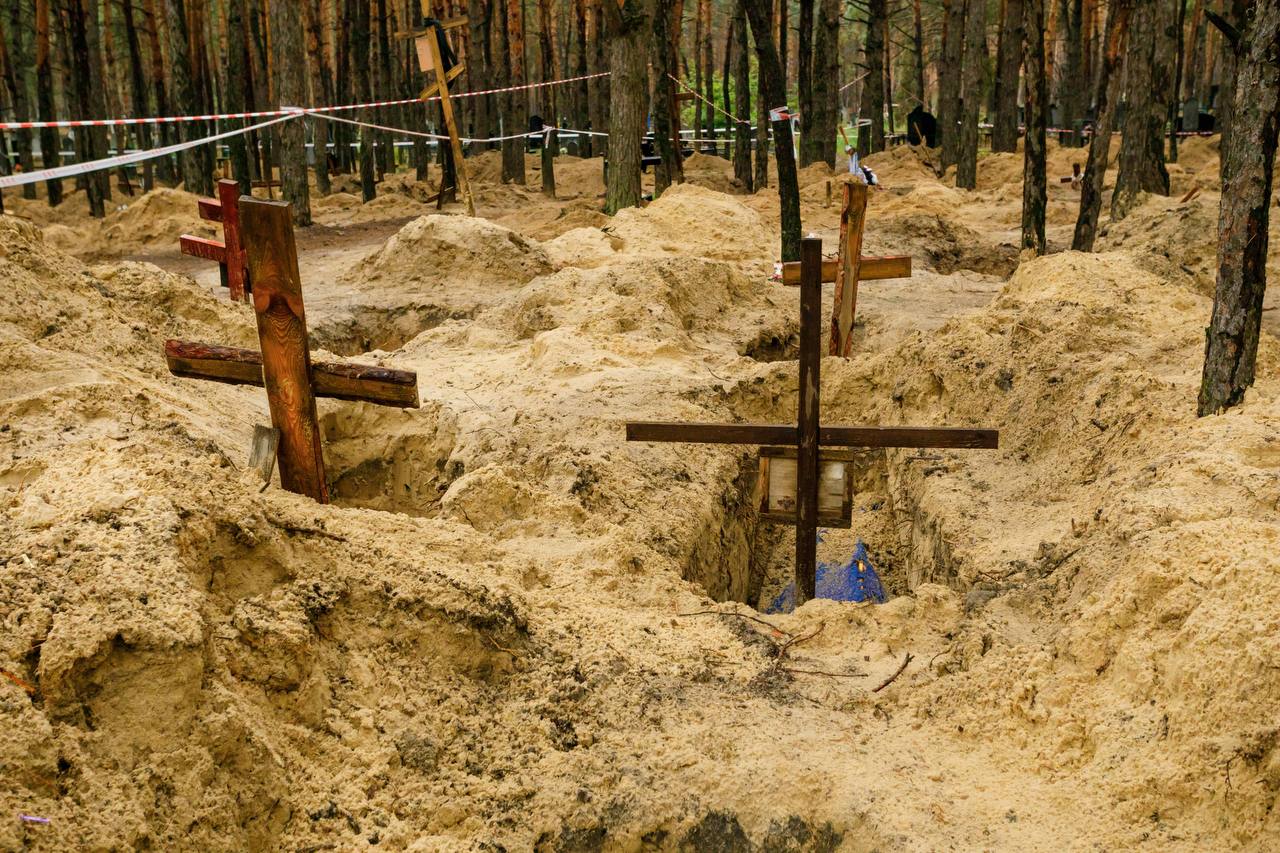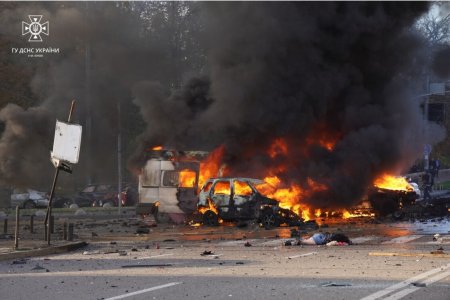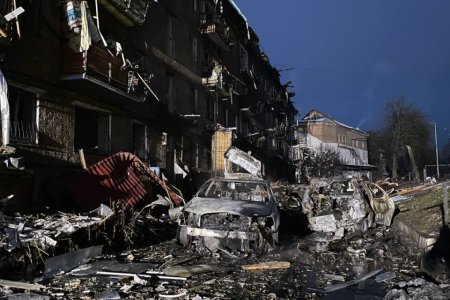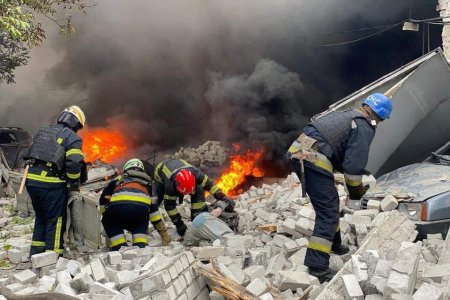
Ukraine’s Verkhovna Rada has, finally, ratified the Rome Statute of the International Criminal Court [ICC], albeit with a limitation on its recognition of the latter’s jurisdiction. The move is important, although belated, coming over ten years after Russia began its military aggression against Ukraine and over two years after its full-scale invasion. Ukraine’s legislators dragged their heels for 24 years before ratification of the Rome Statute, signed back in 2000, and must now move much faster to bring Ukrainian legislation into full accordance with international criminal law.
A bill on ratification was introduced, as No. 0285, by Ukraine’s President Volodymyr Zelensky on 15 August, with MP receiving letters of support for ratification from Ukrainian Military Headquarters and the Head of Military Intelligence, Kyrylo Budanov. The bill was adopted on 21 August 2024. Ukraine’s legislators did, however, make use of an option provided by Article 124 of the Rome Statute. This article, labelled a transitional provision, states that a country may, on becoming a party to the Statute, declare that for a period of seven years after its entry into force, it does not accept the jurisdiction of the Court with respect to war crimes allegedly committed by its nationals. Article 124 was apparently added because of countries otherwise hesitating to join the ICC, and had, up till 21 August, only been used twice (by Colombia and France). A proposal in 2015 which would revoke the article altogether has yet to be ratified by the requisite number of member states.
It is hard to imagine how any Court, let alone the ICC, can be ordered to only investigate certain war crimes, not others, so presumably the limitation applies only to the member state’s recognition of a prosecution and conviction. In this case, the limitation seems especially strange given that Ukraine recognized the Court’s jurisdiction with respect to any crimes committed back in 2014 and 2015 and did not try to impose any restrictions then. If the new law, with its limitation, is intended to revoke the previous recognition of jurisdiction, it seems rather late in the day and scarcely in keeping with the positive message sent by Ukraine’s joining of the ICC. Writing about this before the adoption of the bill, Kevin Jon Heller, Professor of International Law and Security at the University of Copenhagen's Centre for Military Studies, wrote that the conflict between Ukraine’s earlier declarations and the limitation imposed by the bill would be unprecedented. He pointed out, however, that any limitation could only apply to crimes committed after the entry into force of the law, and therefore of the Rome Statute. The situation with respect to crimes committed later is clearly more contentious.
Ukraine committed to ratify the Rome Statute when it signed the EU – Ukraine Association Agreement back in 2014, the year that Russia invaded Crimea and began its military aggression in Donbas. In subsequent years, Ukrainian human rights groups were joined by victims of Russian aggression in calling on Ukrainian legislators to ratify the Statute and ensure that Ukraine had the mechanisms needed to fight the ever-mounting number of war crimes and crimes against humanity committed as part of Russia’s aggression against Ukraine, and to prosecute those suspected of such crimes. Take, for example, the crime of persecution, a type of crime against humanity according to international law. It is a crime committed by the Russian occupation regime against a huge number of Crimean Tatars since 2014, yet there is nothing at all in Ukrainian legislation. As Kostiantyn Zadoya, from the Faculty of Law at Kyiv National University explained back in 2016, “Even if you find another norm and prosecute for actions which are a crime under international law as though they were an ordinary crime, this will fail to take into account the context of organized violence.”
Ukraine’s Criminal Code covers the crime of genocide yet has nothing at all about crimes against humanity. Essentially all criminal proceedings initiated over believed war crimes (including those committed in Bucha, Mariupol, Izium and other Ukrainian cities under Russian occupation) are under Article 438 (violation of the laws and customs of war). Once a law on implementation of the Rome Statute has been adopted, Ukrainian courts should be able to examine international crimes on the same principles as those adhered to by the International Criminal Court at the Hague. A critical aspect of this is the fact that such international crimes cannot be subject to a time bar.
The delay in ratifying the Rome Statute appears to have been because of fears that it could be used to prosecute Ukrainians for war crimes, with the invocation of Article 124 the regrettable method presumably used to secure MPs’ support. It has never made sense, however given the government’s two ad hoc declarations (in April 2014 and September 2015), recognizing ICC jurisdiction to identify and prosecute all those responsible for crimes falling within the scope of the Court from 21 November 2013 until the present day.
The situation changed somewhat after Russia’s full-scale invasion of Ukraine. Almost immediately, ICC Prosecutor Karim Khan publicly hinted that an ICC investigation into resulting war crimes would be expedited if individual member states called for an investigation. Within around two days, 42 states had filed such applications. ICC has thus far issued three international arrest warrants over believed war crimes in Ukraine, against Russian leader Vladimir Putin and his so-called ‘children’s ombudsperson’ Maria Lvova-Belova, and top-ranking military officials and commanders, believed responsible for the bombing of critical infrastructure in Ukraine.
While Ukraine had recognized the Court’s jurisdiction, it certainly did not create a good impression that Ukraine had yet to ratify the Rome Statute. Ukraine’s full membership of ICC is now in stark contrast to Russia which responded to the ICC arrest warrants against Putin & Co. by issuing its very own ‘arrest warrant’ against ICC Prosecutor Khan. This was not the first bizarrely inadequate response. In November 2016, the then ICC Prosecutor declared Russia’s invasion and ongoing occupation of Crimea to be ‘an international armed conflict’ between Ukraine and Russia, thus falling within its jurisdiction. Putin reacted immediately by issuing ‘instructions’ which were widely reported as meaning that Russia had left ICC. It had, in fact, never joined and the instructions were only able to say that they did not want to be a member. This, in fact, changed nothing, with Russia remaining liable for crimes committed on foreign territory.



